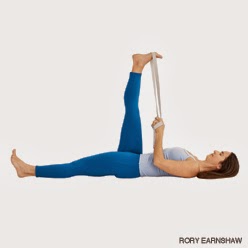Vertigo can be caused by many things including head trauma, stroke, neurological issues or tumors. This post will focus on a very easily treated form of vertigo -- BPPV (Benign paroxysmal positional vertigo). This type of vertigo is related to changes in position of the crystals that are a component of the inner ear.
Symptoms include brief bursts of dizziness, spinning sensations, nausea and or lightheadedness. Some complain of a vague sense of not being "grounded" and being off balance. Symptoms are often intermittent being present for a few days or weeks, stopping and recurring again.
The symptoms are usually noted with positional changes like:
- rolling in bed,
- moving the head from looking down to looking up
- quickly twisting or turning the head
- bending over
Activities that bring on symptoms will vary from person to person but symptoms are almost always precipitated by a change of position of the head with respect to gravity. Getting out of bed or rolling over in bed are the most common problem motions.
What causes the onset of BPPV? Commonly reported causes are hitting your head, whiplash, infection or other disorders of the inner ear and degenerative changes of the structures of the inner ear as we age. Determining BPPV is usually completed with a history and physical exam. Additional testing can include MRI (if neurological problems are suspected) or rotary chair testing (for difficult to diagnose cases).
During the exam if the therapist or physician can reproduce symptoms with various testing movements and can see a jumping of the eyes (called nystagmus) that is associated with BPPV they will be able to treat the vertigo in the office and instruct in management at home.
The treatment of the Epley maneuver is performed by moving a client through 4 distinct positions to move the loose crystals through the ear canal to a point where they no longer will stimulate the symptom onset. Home exercises are usually given along with instructions to avoid extremes of head motions, sleeping in a reclined position and not sleeping on the involved side. This procedure is effective in about 80% of the population.
As always we hope the information is helpful in your daily pursuit of good health and improvements in mobility. If you would like more information you can call or contact us at RI Limb Prosthetics, Orthotics And Physical Therapy -- (401) 884-9541








